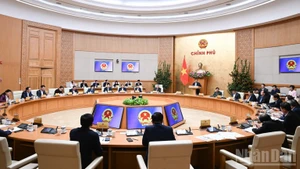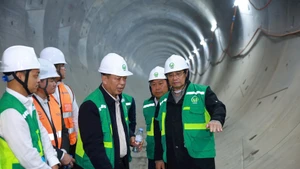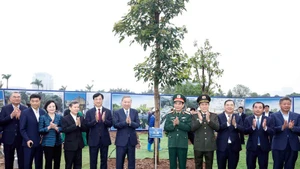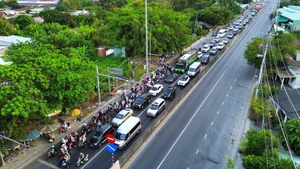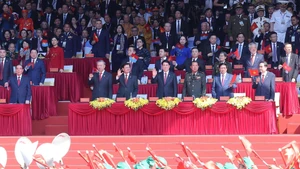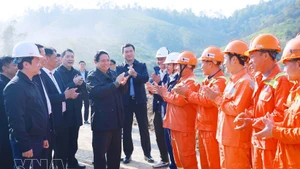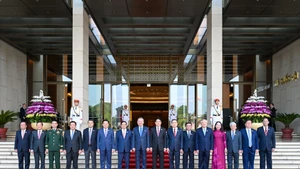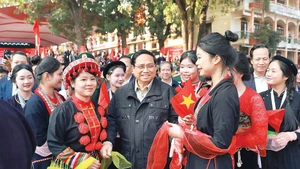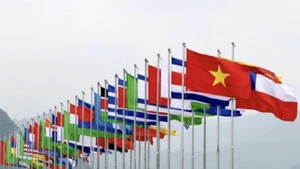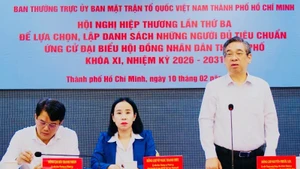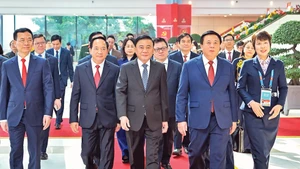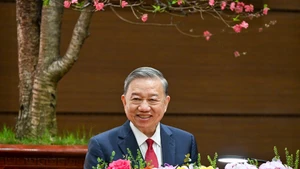They are a draft Resolution on special mechanisms and policies to implement Politburo Resolution No. 71-NQ/TW on breakthroughs in education and training; and another on mechanisms and policies to effectively implement Politburo Resolution No. 72-NQ/TW on enhancing the protection, care and improvement of public health. Legislators also looked into the revised Law on National Reserves at the working session.
Presenting the Government’s proposals, Finance Minister Nguyen Van Thang stated that the revised Law on National Reserves aims to institutionalise the Party and State’s orientations; perfect the legal framework governing national reserves; promote decentralisation in policy-making; simplify administrative procedures; foster science, technology, innovation and digital transformation; and mobilise and use lawful resources more effectively for national reserves.
The draft law comprises six chapters with 35 articles, a reduction of 31 articles compared to the current law. The 29 revised and refined articles focus on the scope of regulation, target groups, objectives of national reserves, terminology, state management rules, principles for managing and using reserve goods, responsibilities of state agencies and contracted custodians, budget allocation for reserves, national reserve strategies and reserve product categories.
The draft Resolution on special, breakthrough mechanisms for education and training allows the application of policies that differ from existing laws within a defined scope and timeframe, while ensuring oversight, assessment and review for future legal institutionalisation. The Ministry of Education and Training proposes six priority policy groups with direct impact and high feasibility: education workforce development; curriculum and education development mechanisms; digital transformation, science, technology and innovation; international integration; finance, incentives and investment.
To implement Resolution No. 71-NQ/TW, the draft Resolution introduces exceptional incentives for teachers and staff in educational institutions; grants provincial education directors authority over recruitment, reassignment and secondment to ensure consistent workforce management; and establishes mechanisms to attract, retain and develop high-quality personnel in teaching, research and administration.
It also stipulates mechanisms ensuring comprehensive autonomy for higher education and vocational training institutions; renewal of preschool, general, higher and continuing education curricula; nationwide adoption of a single set of textbooks; and the building of an open, interconnected education system that promotes lifelong learning.
Notably, the draft Resolution includes transitional provisions on restructuring the education system; adopting a unified textbook set; abolishing school governing councils in public institutions (except those under international agreements); and implementing the model in which the Party secretary concurrently serves as the head of the educational institution to enhance leadership consistency and operational effectiveness.
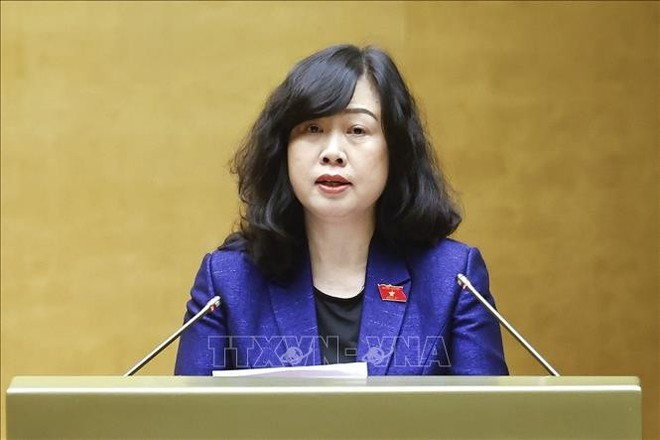
The draft Resolution on breakthrough mechanisms for public health identifies six groups of tasks: transforming leadership and implementation approaches in healthcare; promptly perfect the regulatory framework and strengthening the health system, particularly preventive and grassroots healthcare, while leveraging traditional medicine; improving medical ethics and developing a competent health workforce that meets patient satisfaction and international standards; advancing healthcare financing reform and sustainable health insurance policies; promoting science, technology, innovation and comprehensive digital transformation in healthcare; and expanding private healthcare to mobilise and use resources effectively.
Based on current shortcomings in the health sector, the draft Resolution targets strategic breakthroughs to institutionalise Resolution No. 72-NQ/TW and advance the sector. A key policy group focuses on reducing medical costs for citizens: from 2026, periodic free health check-ups at least once a year will be provided for designated groups; basic hospital fees will be waived within the health insurance benefits package following an appropriate roadmap; and pilot schemes will allow diversified health insurance and supplementary insurance packages tailored to public needs.

